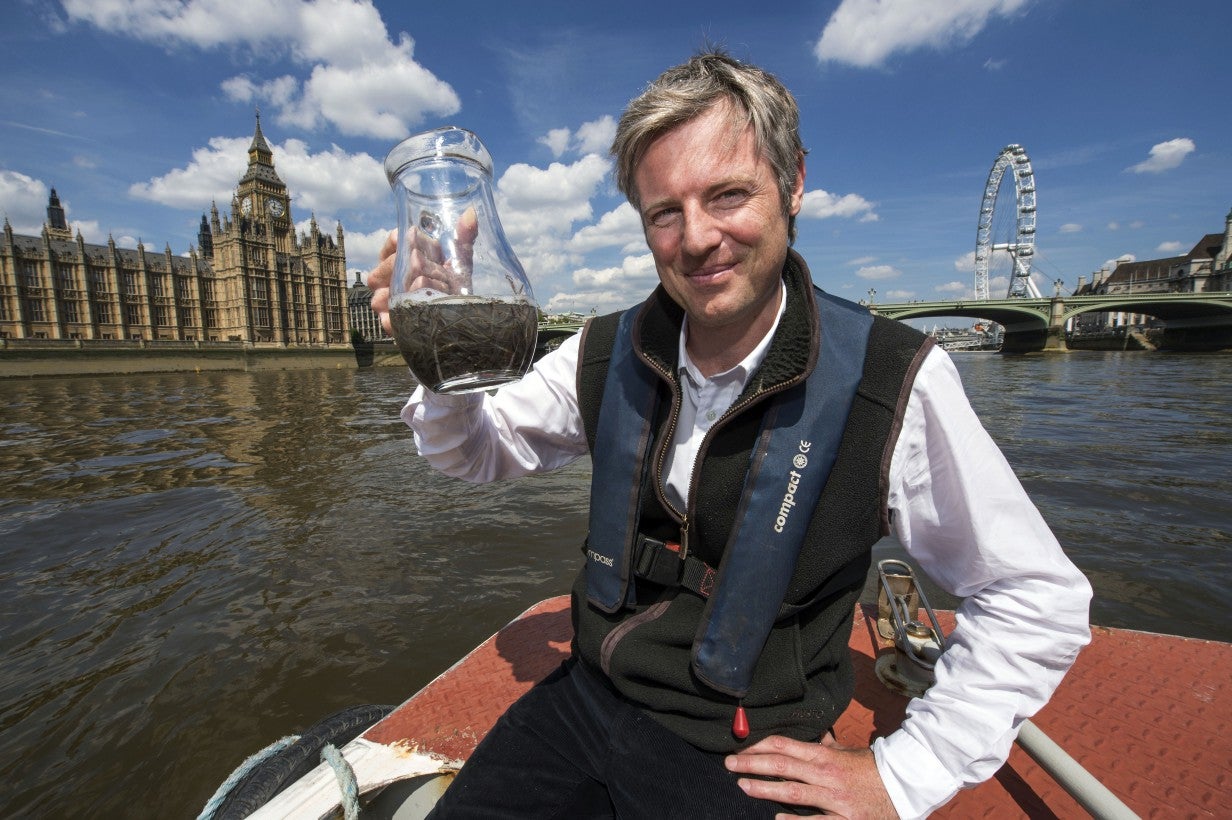Donald Macintyre's Sketch: Humble eels provide lesson in persistence as Zac Goldsmith helps unload 10,000 eels into the Thames

“I don’t mind eels,” wrote the American poet Ogden Nash, “except as meals/and the way they feels.” The Tory MP Zac Goldsmith is made of sterner stuff.
Not that he was actually eating them on Monday – in contrast to their many fans who still devour them jellied, smoked or fried with scrambled eggs.
But posing for photographers at Westminster pier as a sizeable group of “elvers” – juvenile eels to you and me – swam energetically round the water held in his cupped hands, he seemed quite entranced by the “way they feels”.
Those who assume that Tory MPs have nothing to do in the longish break ordered by David Cameron to stop them plotting after the European elections would have been surprised to see Goldsmith midstream on a boat with Andrew Kerr, chairman of the Sustainable Eel Group, delicately unloading 10,000 of the wriggly creatures, two or three inches long, into their hospitable new river habitat.
As we watched this solemn undertaking from a nearby vessel, however, it was clear that the real heroes were not the environmentalist Goldsmith – or Kerr, a former cavalry officer it would be a wild understatement to describe as passionate about the species – but the eels themselves.
They were, in Goldsmith’s own words, “extraordinarily tough and determined” considering “how tiny and fragile they look”. For they were just a fraction of the minuscule fraction – 1 per cent – who made it “from their spawning grounds in the Sargasso Sea to Europe. (“Trillions were born but only a billion or two arrived,” exclaimed Kerr, lovingly.)
Here, in one of the planet’s most mysterious life cycles, they grow – for a decade in the British climate – to as much as 3ft before returning across the ocean to breed and die. Or at least that’s the theory, since no one has seen it happen.
But in contrast to most of the last 100 million years this has been going on, the hardy minority who get through now face obstacles in their upstream freshwater journey– flood defences, weirs, hydro power stations – which have seriously endangered the species. And would still be doing if volunteers weren’t relocating them from overcrowded western habitats to less eel-populous easterly ones where there is more for them to eat.
And, if in Britain at least, the Environment Agency – unfashionably but warmly praised by both Kerr and Goldsmith – were not gradually making some of the man-made obstacles “eel-friendly” with ingenious “passes” to allow them through. So how do they “feels”? “They put up quite a struggle,” said Goldsmith. “They were forcing their way through my fingers.”
He was surprised they were not as “slippery as I expected”.
The Richmond MP, not known for excessive subservience to the party whips, added thoughtfully, with a nod across to the Commons, “not as slippery as they are over there”.
Subscribe to Independent Premium to bookmark this article
Want to bookmark your favourite articles and stories to read or reference later? Start your Independent Premium subscription today.

Join our commenting forum
Join thought-provoking conversations, follow other Independent readers and see their replies